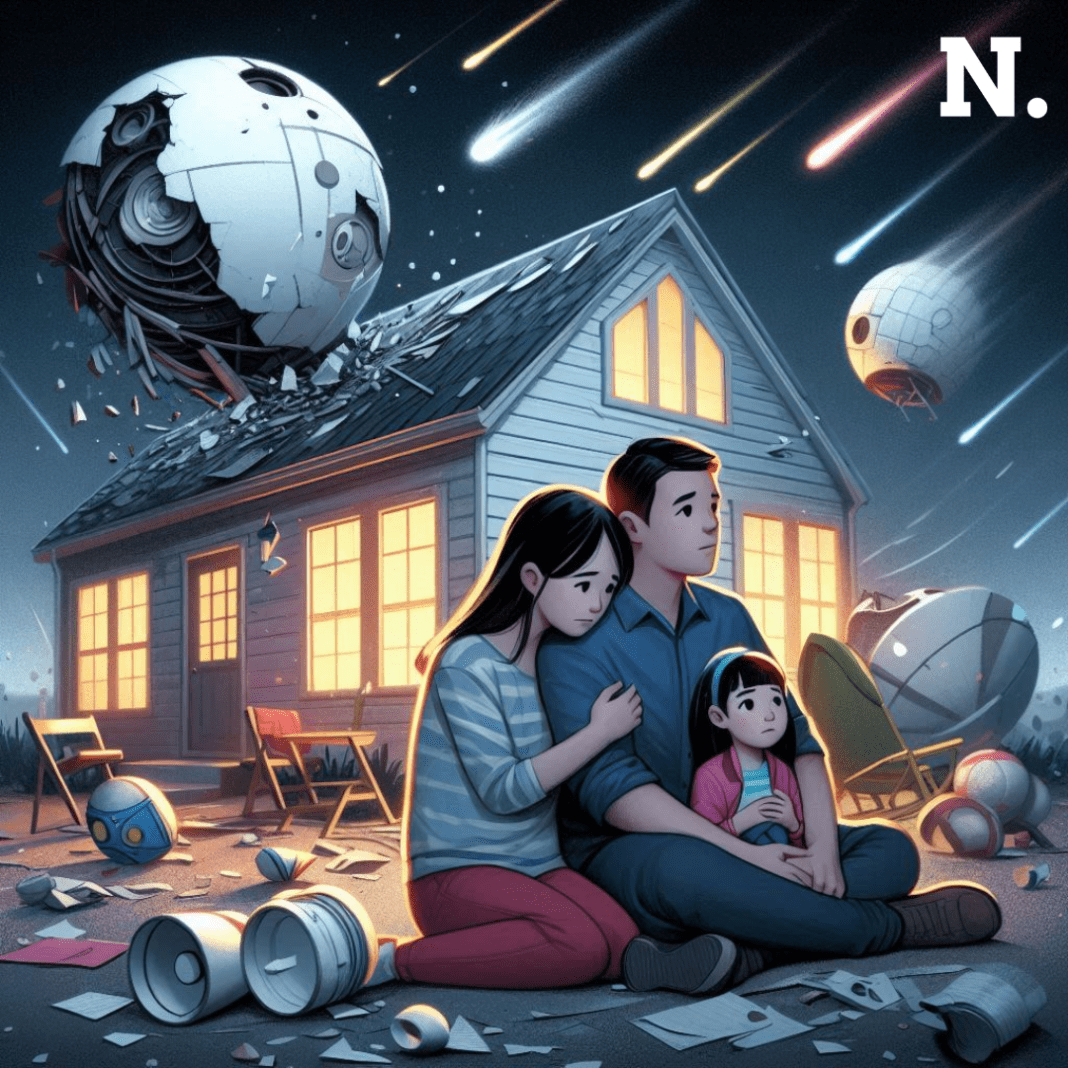In a bizarre development, a US family is suing NASA after their roof was hit by space scum. The case is likely to raise questions about liability for space debris. And the management of extraterrestrial activities that might infringe upon the rights of civilians on Earth. The article delves into the details of the case and gives implications. Both for further space exploration as well as the people on Earth who are directly involved.
NASA Liability in Space Debris Incident
On an ordinary day, fragments of space debris fell out of orbit. And into the roof of a typical family abode in some suburban region of the world. Such debris, claiming to part of a defunct satellite, wreaked havoc on this property. And almost placed its owner at a moment of sustaining injury. It happened in the US and now the family hit by this catastrophe is thrust into the limelight. As they ask rightly and for compensation for the ordeal they had gone through.
On its part, the family whose house was hit sued NASA, the US space agency. They argue that the event is an indicator of how NASA has ignored. Handling space garbage, which will, in the future, amount to a danger to life and property on earth. Even though NASA operates with some of the strictest monitoring and mitigation protocols for debris. These incidents highlight the demanding conditions and possible inadequacies of current space governance, time and again.
NASA Role in Space Debris Governance
The case raises complex questions with respect to outer space activities. While space agencies like NASA are responsible for keeping track of and cataloguing space debris, the legal responsibility for damages caused by such debris remains ambiguous. International treaties and agreements govern space activities, but in most cases, they lack clear provisions regarding liability for damage caused by space debris to private property.
The incident exemplified the urgent need for international cooperation and stricter rules related to space debris. The more satellites we have and the more intense the space missions become, the higher the risk of debris collision and incidents. Cleaning up space junk and preventing future accidents are key actions that need to be taken for the sustainability of space activities and safety with respect to both space infrastructure and life on Earth.
Public and Expert Reactions
Public reaction to the incident was mixed: some people were very much in sympathy. With the family, while others laid much emphasis on the risks of exploring space. Experts in aerospace engineering and law have thrown their comments on the matter of how traceability and responsibility. Are complicated to manage and how they attribute liability. The outcome of this lawsuit will set a standard that might be followed in the case of future incidents. Relating to space debris, hence influencing policies in space governance around the world.
NASA’s Commitment and Future Challenges
NASA has expressed sorrow for the incident, but it has reiterated its position that safety in space is its ultimate goal in everything it does. The agency correctly continues to invest in technologies of mitigating debris. Internationally, it seeking to find ways and means with other partners to establish workable guidelines for responsible operations in space. Still, whether these measures will sufficiently avoid and prevent future incidents is a main point of concerns that stakeholders share.
Taking the case beyond its immediate legal and financial implications for NASA and. The affected family, the broader framework raised here is the future of space exploration and governance. It strongly argues for fully realised policies that not only answer the technological problems of space debris. But consider the legal and ethical issues attending liability and compensation in case of accidents.
The case of the US family, who would like to seek damages for NASA for their house hit by space debris. Is powerful in terms of reminding one of how complex and risky all human activity outside the Earth’s atmosphere is. Advancing human exploration requires corresponding effort in order to continue mitigating the hazards of space. Debris while ensuring accountability for such incidents that affect life on Earth. Indeed, the result of this lawsuit will determine the future policies on governing space. And therefore liability—in other words, the way that we are going to move about in this changing landscape of outer space.
Call for International Collaboration: Regulatory Reforms
This incident serves as a loud call for international collaboration in the reforms required in regulations of space debris. Which will protect our investments in space exploration and the well-being of community life on Earth. As we cast our eyes to the heavens in wonder and amazement, so must we be vigilant in protecting the planet and its inhabitants from the side effects of our ventures into space





